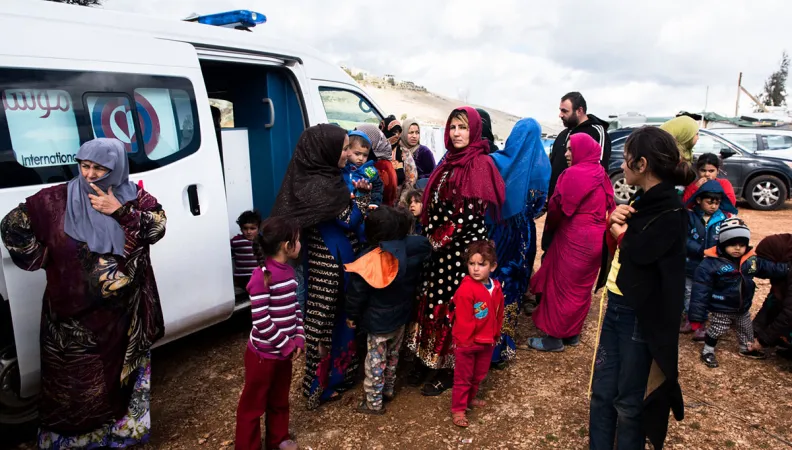Share the page
Access to healthcare and protection: Tools to prevent tensions in Lebanon (phase 2)
Project


-
Project start date
-
-
Project duration
-
20 months
-
AFD financing amount
-
€ 1 900 000
-
Country and region
-
Location
-
Beirut/Mount Lebanon: Haret Hreik, Bourj El Barajneh, Hayye Sellom Bekaa: Ersal, El Ain, Shmestar, Kamed El Loz, Mashgharah South Lebanon: Halta, Fardis, Khiam, Sour, Bazourieh
-
Type of financing
-
Beneficiaries
-
Amel Association International, International Alert, Samusocial International
The Lebanese association Amel is working on reducing tensions in Lebanon by improving access to health and protection for vulnerable people, in partnership with International Alert and Samusocial International. Following on from a 1st phase, which started in 2016, AFD wished to extend its support for this project for a 2nd phase.
Context
Between 2011 and 2017, the Syrian crisis led to the exile of over 5 million Syrian refugees to neighboring countries: Turkey, Lebanon, Jordan and Iraq. This massive influx has major social, economic and political consequences, which tend to exacerbate existing tensions and vulnerabilities in countries in the region. AFD has set out to address the impacts of the crisis by launching the SAWA Initiative, to help these countries strengthen their resilience and accelerate their recovery. One of SAWA’s activities is to finance projects led by NGOs, which directly target populations affected by the crisis.
For example, in 2016, AFD financed three projects in Lebanon, Jordan and Iraqi Kurdistan following a “Crisis and post-crisis” call for projects. The objective was to improve access to essential social services for refugees and host communities, while building the capacities of local actors. In response to the protracted nature of the crisis, AFD decided to extend the activities of these three projects via a new financing phase for a total of EUR 5m.
Description
The second phase of the project led by Amel is being implemented in Lebanon, in the Beirut/Mount Lebanon, Bekaa and South Lebanon regions. In partnership with International Alert and Samusocial International, the project aims to strengthen social cohesion and improve access to health and protection services for Syrian refugees and the most vulnerable Lebanese people.
The project will achieve the following results:
- Improved access to a quality health service for 100,000 Syrian refugees and vulnerable Lebanese people;
- Stronger mutual trust between 5,000 Syrian refugees and Lebanese people thanks to awareness-raising sessions;
- Training for 450 volunteer community workers and health and protection professionals in taking the conflict dimension into account in the provision of social services;
- 700 street children and young people will have access to systems for assistance, medical and psychosocial protection and legal assistance.
Impacts
- Improvement in access to health and protection services for vulnerable populations by strengthening primary health centers and deploying mobile units;
- Reduction in tensions by improving access to essential services for all and to awareness-raising sessions to promote dialogue between Lebanese people and Syrians;
- A commitment by representatives from national and local authorities and civil society to a resilient approach to essential social services, promoting social cohesion: sharing of good practices, capitalization, action-research, advocacy;
- Improvement in access to services and protection for children and young people, as well as for their families, by setting up a mobile assistance team and sensitizing professionals and individuals to street situations.


